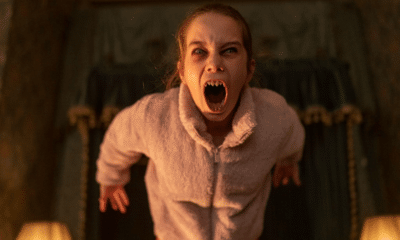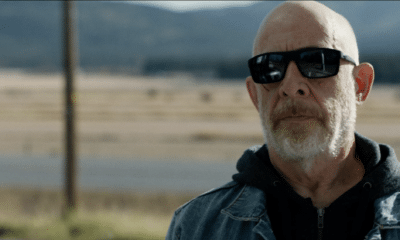
Diversity question has occupied one of the leading positions in the world’s top. In Hollywood, the topic has become almost a buzzword for describing indifference to difference. For many years, the issue of film diversity has been changing, but the real pick happened in 2016 and David Cox summarised it all in the Guardian film blog as “The Oscars may not be anti-black, but they are hideously white.”
The power of film is in creating particular thinking and persuading the audience in what they need to dig in. Besides that film has been one of the most powerful tools in reshaping people’s understanding of the world because it is films that depict not how the world looks like but what it can look like. As a part of art in general, the film industry has the unique ability to instil empathy across such barriers as a class, race, gender, sexual orientation, geography, or creed. A film can either uplift or instruct, or can it distract from the problems. So why has diversity become one of the most debated topics of the past years and what influence has it made in the film industry?
Why diversity matters?
Diversity is the key to understanding each other, and so the key to an open dialogue instead of the hidden and foul actions. After the selection of Donald Trump, the US has plunged into racism, homophobia, misogyny, and all other possible forms of vile bigotry. Open leader’s support of nationalists has given the KKK the new wave of popularity and power in America. But why does it matter to the world?
The US is one of the most powerful countries in the world, so its politics and international position influences almost every citizen of the planet. With the growing tendency towards complete isolation of Americans and disregard of the non-whites, the country is diving into the deep nought, taking along its cultural heritage.
Gary Collins from Red Rock Entertainment film investment and production company says that in such a situation, art is the only force that can help the nation and so the world stays sane. Film as a part of the art’s definition is obliged to act and promote diversity as much as possible to save the world!
What’s the problem with diversity in the film industry?
The problem with diversity for the film industry is that it’s based and led by the white middle-aged, middle-class males who cannot represent the whole variety of people around. As a result, characters played by the white male actors and stories built around those characters are not entirely correct and promote the wrong values.
Vanessa Portillo, a casting trooper, said: “Diversity is authenticity. Keeping it real and including everyone is the best way to ensure that the audience doesn’t feel tricked or manipulated.” She directly gave a mouth to the importance of diversity not only for the film as power but for its the artistic nature.
While producers from Red Rock Entertainment agree with Ms Portillo, they note another essential aspect of the industry that slows down the diversity unfolding. It’s much easier to cast and then sell white men in non-U.S. markets. Today these markets are leading the industry because they bring the most significant profit. As a result, the industry just tries to respond to the demand by selling white men dominated films and so only deepening and worsening the problem. However, producers insist on the necessity of continuing to open up the discussion every time possible. The more it will be uttered, the faster the solution will come. For example, the #OscarsSoWhite tweet in 2016 or the #MeToo movement in 2017 that included the whole world into the issues have rapidly escalated the problem and caused a wave of active response and course of actions.
How to reach diversity in a film?
While the problem of diversity in the film seems to be obvious and loud these days, rarely do filmmakers realise what they need and can do to celebrate diversity and promote it in the industry. Susanna Fogel, the director of Life Partners 2014, has perfectly put it together: “the ‘fancy people’ and the ‘indie people’ need to team up to reinvent what ‘commercial’ means.”
If today ‘commercial’ equals ‘white middle-aged man’ character, then this should be changed. If the stereotype that only a white middle-aged man can reach the top of the business food chain continues to spread, then it should be changed. If it is a white middle-aged man who gets a job instead of any other expert in the field, then it should be changed. Diversity in film today is all about changes. Craig Zobel, the director of Z for Zachariah and Compliance, said that many of the people in the film industry are actually “they” who we will talk about in this article. So if you read about “them” and nod, then apply it on your life and try to do the same because you are among “them”.
So here are the steps anyone can make in the film industry to change it for the better considering the context of the diversity problem.
- Writers need to focus more on the characters other than white men. The tendency to put women upfront has already born its fruit (film by Red Rock Entertainment The Stolen or John Madden’s Miss Sloane). However, there are more sides of a human’s nature. The leading character can be of different sexual orientation or be non-white (as in Hidden Figures 2016), they can be of different race, ethnicity, or nationality; whatever you like, just not white.
- Stereotypes should be avoided at all costs. Of course, it doesn’t mean that the director and the crew need to get “colourblind”, but don’t cast African Americans only for the slave roles.
- Producers and directors need to be more open-minded and diverse about their teams, not only cast seen on the screen. Never refuse a job to a person who’s a part of the LGBT or because he or she isn’t gender-fit to the position. This will only promote indifference onset and may even bury the project if the journalists decide to go public with such a material.
- All members of the film industry regardless of any differences should unite together to raise an issue of the diversity problem. And it shouldn’t be just a post on a social media platform or a hashtag added to a photo. These should be activities like the Cannes 2018 women’s march or Oprah Winfrey’s speech at the Golden Globe earlier this year. Even if you’re not that famous as Cate Blanchett or Oprah, you still can say a word if you see discrimination on set or show an example of worthy conduct.
Diversity is a burning question in the film industry of 2018. And the goal of filmmakers is do everything possible to promote it both at the film studio and on the global scale, onset and on the screen. Open your eyes and never close your mind these days because the future of the film depends on the steps you make today.

Latest Posts
-


Film News
/ 4 hours agoFirst ‘Transformers One’ teaser trailer debuts IN SPACE!
The animated feature film is heading to cinemas this September.
By Paul Heath -


Film Reviews
/ 4 hours ago‘Abigail’ review: Dirs. Matt Bettinelli-Olpin & Tyler Gillett (2024)
Matt Bettinelli-Olpin and Tyler Gillett direct this new horror/ heist hybrid.
By Awais Irfan -


Film Trailers
/ 6 hours agoNew trailer for J.K. Simmons-led ‘You Can’t Run Forever’
A trailer has dropped for You Can’t Run Forever, a new thriller led by...
By Paul Heath -


Film Trailers
/ 11 hours agoNew trailer for Shudder’s ‘Nightwatch: Demons Are Forever’
Coming to Shudder this May.
By Paul Heath










